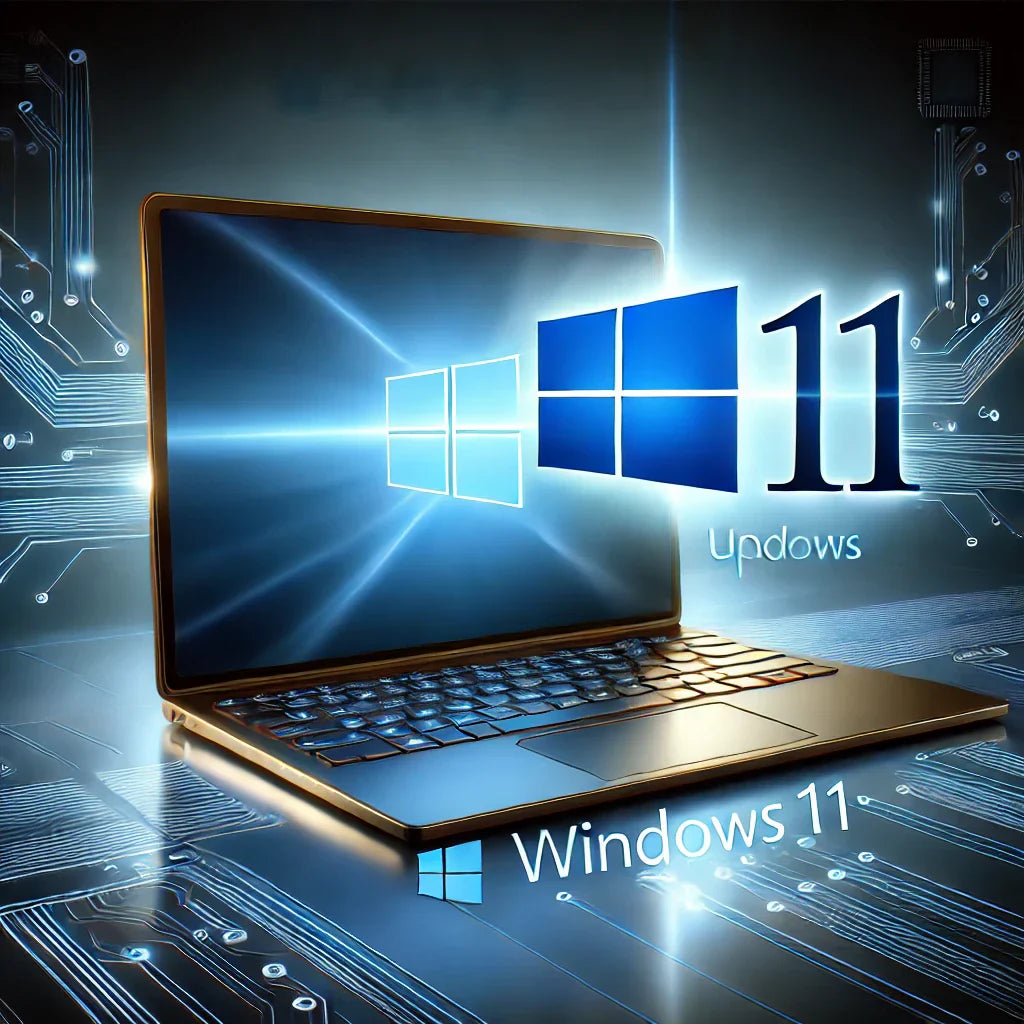
Should You Upgrade to Windows 11?
Share
03/04/2025
As the end of support for Windows 10 approaches on October 14, 2025, many users are contemplating whether to upgrade to Windows 11. At Adams IT Services, we've guided numerous clients through this transition. Here's what you need to know to make an informed decision.
Understanding Windows 11
Windows 11 introduces several enhancements over its predecessor, including a redesigned interface, improved performance, and advanced security features. However, it also comes with specific system requirements that your device must meet to ensure optimal functionality.
Minimum System Requirements
To install Windows 11, your PC should meet the following minimum specifications:
- Processor: 1 GHz or faster with at least 2 cores on a compatible 64-bit processor or System on a Chip (SoC).
- RAM: 4 GB or more.
- Storage: 64 GB or larger storage device.
- System Firmware: UEFI, Secure Boot capable.
- TPM: Trusted Platform Module (TPM) version 2.0.
- Graphics Card: Compatible with DirectX 12 or later with a WDDM 2.0 driver.
- Display: 720p resolution, greater than 9” diagonally.
These requirements are designed to ensure reliability, security, and compatibility with modern applications.
The Implications of Windows 10's End of Support
After October 14, 2025, Microsoft will no longer provide:
- Security Updates: Leaving systems vulnerable to emerging threats.
- Technical Assistance: Microsoft's support channels will no longer address Windows 10 issues.
- Software Updates: No new features or improvements will be added.
While your Windows 10 device will continue to function, the lack of updates could expose you to security risks and compatibility issues with newer software and hardware.
Evaluating Your Current Hardware
Before upgrading, it's essential to assess whether your current hardware meets Windows 11's requirements:
- Desktops: Upgrading components like the CPU or adding a TPM 2.0 module may be feasible.
- Laptops: Upgrading is often limited; if your device lacks TPM 2.0 or has an incompatible processor, you might need to consider a new device.
Risks of Using Unsupported Hardware
Installing Windows 11 on unsupported hardware can lead to:
- Stability Issues: Increased likelihood of system crashes and performance problems.
- Security Vulnerabilities: Potential exposure to threats due to lack of proper security features.
- Limited Updates: Microsoft may restrict updates on unsupported systems, leaving you without critical patches.
Therefore, it's advisable to avoid forcing the installation on incompatible devices.
Making the Decision
If your PC meets the necessary requirements, upgrading to Windows 11 is a prudent choice to ensure continued support and security. If not, you have time until October 2025 to plan for a suitable upgrade or replacement.
At Adams IT Services, we're here to assist with assessing your current setup, facilitating the upgrade process, or helping you choose a new device that aligns with your needs. Our goal is to ensure a seamless and secure computing experience for all our clients.
For personalized advice and support, feel free to contact us.
Thank you for choosing Adams IT Services!
